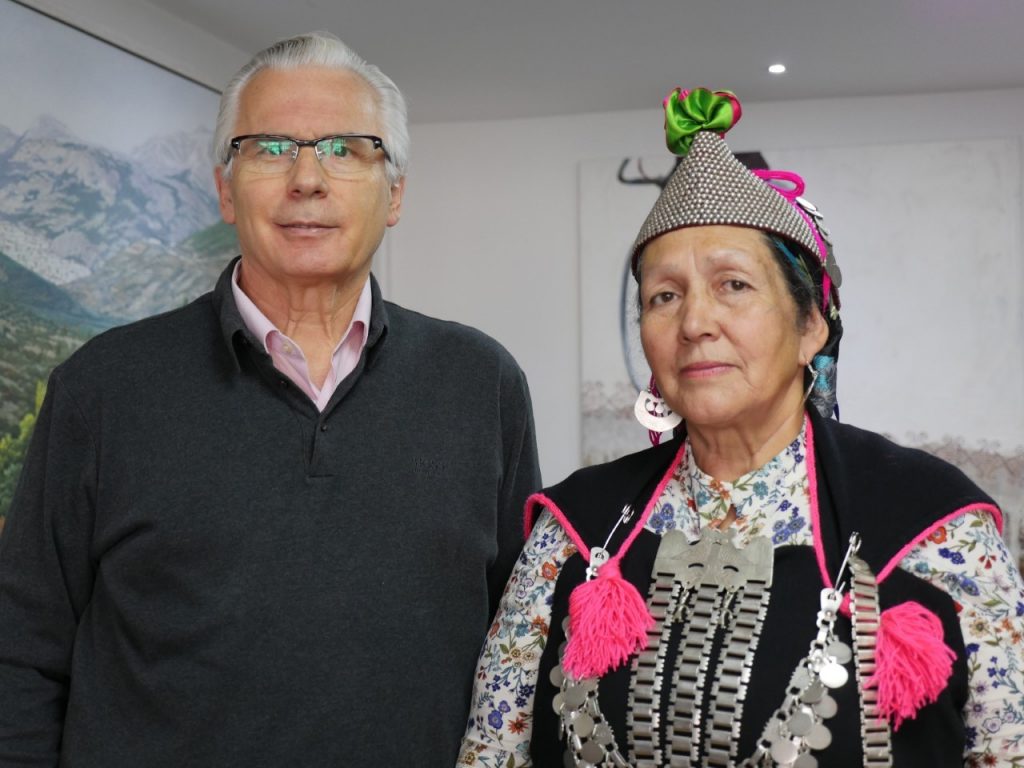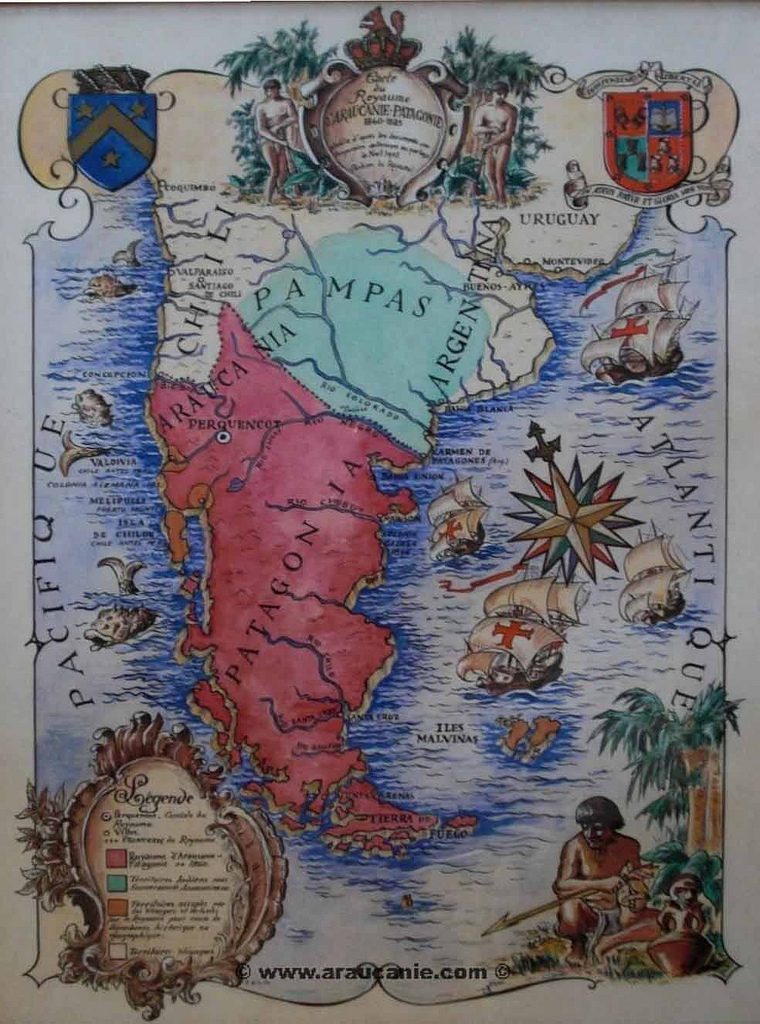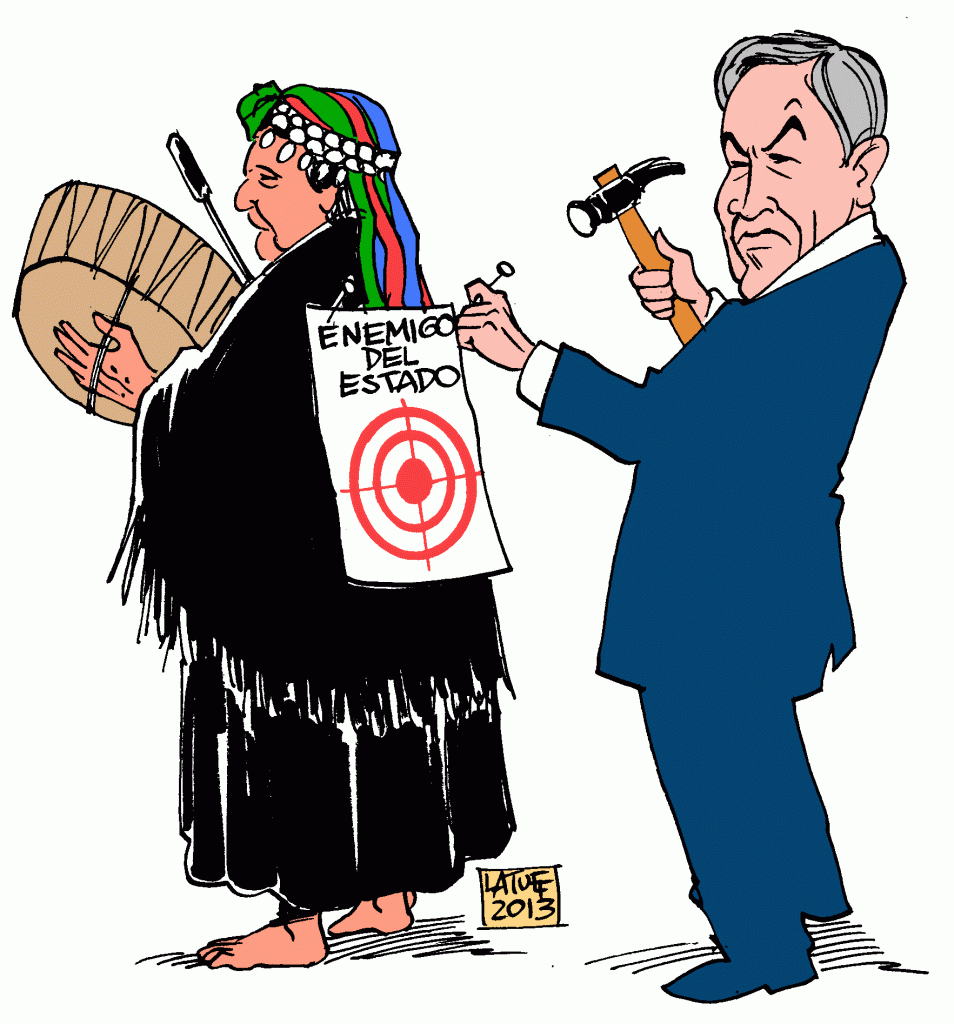Mapuche Genocide Needs International Attention – and ICC Action!
By Ramona Wadi
“Even today … we are hostages of states that don’t recognise our Mapuche nationality.”
A meeting between Chilean Mapuche Lonko -an indigenous chief- the founder of Chilean Ethical Commission Against Torture Juana Calfunao and Spanish Judge Baltasar Garzón in the Netherlands shattered the usual parameters applied when discussing the systematic persecution of the indigenous Mapuche in Chile and Argentina.
Garzón, who issued the international arrest warrant for the late Chilean dictator Augusto Pinochet in 1998, is supporting the Mapuche quest for legal justice at the International Criminal Court (ICC).
Calfunao is part of a delegation which is presenting documents pertaining to Chilean and Argentinian state persecution of the Mapuche people and activists supporting their struggle for land reclamation. Besides Garzón’s support, the approach to the ICC was initiated by the Prince of Araucania and Patagonia, Frederic Luz.

L-R: Judge Baltasar Garzón and Chilean Ethical Commission Against Torture founder Juana Calfunao. | Courtesy of Calfunao.
In the early 1860s, French lawyer Orelie de Tounens travelled to Araucania and established himself as King with the consent of the indigenous population. Contrary to the colonial agenda which would later massacre 90 percent of the Mapuche population in an invasion known as the “Pacification of Araucania”, de Tounens established a system based upon Mapuche traditional assembly, according to Reynaldo Mariqueo.
De Tounens was eventually banished from Chile. Yet since de Tounens, there has always been a Mapuche Kingdom representative in France. While the symbolic value in terms of Mapuche sovereignty has been recognised within the community, Luz’s decision to present the case to the ICC goes beyond symbolism and marks a form of anti-colonial diplomatic strategy.
Speaking to the Wry Ronin, Reynaldo Mariqueo from Mapuche International Link explained, “Juana Calfunao’s visit to the ICC was made possible due to the intervention of Prince Frederic. Following the compilation of information on human rights violations committed by the governments of Chile and Argentina under Sebastian Piñera and Mauricio Macri, as well as members of their governments who are promoting and committing genocide and crimes against humanity against the Mapuche, the Prince wrote a letter to be delivered to the ICC.”
Consultation with the indigenous communities in Chile and Argentina, as well as documents prepared by the Mapuche Human Rights Commission and other information presented to the UN Human Rights Council formed part of the dossier presented to the ICC. The ICC, said Mariqueo, will formulate a reply to Prince Frederic as regards to acknowledgement and forthcoming processes.
About Calfunao’s meeting with judge Garzón, Mariqueo stated that advice was offered as regards to the best way to represent the Mapuche and communicate the case to the ICC.
Prince Frederic Luz not only remarked upon the genocidal acts committed against the Mapuche, but also the links between massacres, dispossession and criminalisation of resistance.
“In the past, Argentine and Chilean states colluded in the physical genocide of the Mapuche people, to destroy its state. Now they collaborate in order to repress and criminalise their just demands for their rights. They use legislation and anti-terrorist laws to violate their individual and collective human rights, police raids, detentions, violence and even assassinations, all techniques designed to exterminate them as a people.”
Calfunao describes the perpetual ramifications of the early colonial massacres in contemporary society thus: “Even today … we are hostages of states that don’t recognise our Mapuche nationality.”
As with other Mapuche people, the Chilean state has systematically persecuted Calfunao. In 2006, she was sentenced to 150 days in prison for protesting the construction of a private road on their community’s land. Calfunao was also illegally detained and tortured in 2000 and her family home subjected to arson attacks.

The indigenous Kingdom of Araucania and Patagonia.
A UN Human Rights Council document dated February 2019 specifically recommends ending “the Mapuche genocide” and an end to the “political persecution of Mapuche leaders”. It also recognises the Mapuche being subjected to genocide and ethnic cleansing and calls attention to the disappearance of Mapuche activists “since the return of democracy in Argentina in 1983”.
Between 1973 and 1990 in Chile’s dictatorship era, 171 Mapuches were killed and disappeared, in connection with resistance against dictatorship-enforced dispossession. Since Chile’s transition to democracy and during the presidencies of Ricardo Lagos, Michelle Bachelet and Sebastian Piñera, 15 Mapuche people were assassinated.
As is often the case, indigenous rights are barely ever discussed from an anti-colonial perspective, let alone from indigenous narratives of resistance. The murder of Chilean Mapuche Camilo Catrillanca in 2018, shot in the head by the Comando Jungla, elicited short-lived interest in mainstream media. Likewise in 2017, the disappearance of Argentinian activist for Mapuche rights, Santiago Maldonado, was also a temporary news interest.
Maldonado’s body was discovered in a river months later and his cause of death, according to official statements, was “drowning”. His case, however, was closed by Argentina’s judicial bodies without clarifications, while also dismissing the role played by the police in violently disrupting a protest in which Maldonado, along with Mapuche activists, was participating in.
In both cases however, the media pursued sensationalism rather than systematic violence aimed at preventing the Mapuche from asserting their rights. Behind these two prominent cases lies a web of genocidal intent and practice – one which spans centuries and which was perfected through neoliberal policies pursued by the US-backed right-wing dictatorships – in 1979 Pinochet had declared that “the divided lands will no longer be considered indigenous lands and the people living on those lands will no longer be considered indigenous.”
Relics of this enforced oblivion are practiced by today’s right-wing Chilean President Sebastian Piñera and his Argentinian counterpart, Mauricio Macri, as both seek to criminalise Mapuche resistance while exploiting territory for profit.
The Mapuche approach to the ICC has several implications. Primarily, the Mapuche struggle is no longer confined to Chile and Argentina as it now has the potential to generate international attention.

A political cartoon by Latuff depicting current Chilean President Sebastián Piñera pinning a sign on a Mapuche’s back. The sign reads “Enemy of the state.”
One reason why indigenous voices are fragmented is that colonial and neoliberal violence impose their narratives upon the communities, thus fragmenting land, people and memory. The lack, or absence, of space for indigenous narratives to be heard and acknowledged contributes to the normalisation of violence against indigenous people while also imposing various forms of control.
Equally important is the acknowledgement and accountability of the international community when it comes to the protection of indigenous rights. During and after the dictatorships of Chile and Argentina, the international community has largely turned a blind eye to state violence and criminalisation of resistance, as well as to the killings and disappearances of Mapuche people. This violence has its collaborators.
In Argentina, for instance, Benetton has become “the largest private landowner”, situated on 2.2 million acres of indigenous territory and for which it has repeatedly absolved itself. Chile’s overtures to forestry and mining companies, as well as its application of the anti-terror laws and police violence against communities, are also the product of collusion between state policy and multinational companies.
It is usually governments that have the upper hand in international relations and this is not contested in terms of complicity in human rights violations. Despite ICC bureaucracy, which is a major impediment to justice, the Mapuche approach to the ICC has the potential to challenge mainstream perceptions and the normalisation of violence, by shifting focus upon the international links which have facilitated interminable cruelty against indigenous populations to safeguard a colonial legacy.
With thanks to Carole Concha Bell for her assistance in obtaining quotes for the article.
Ramona Wadi is a freelance journalist and independent researcher featured in Middle East Eye, Middle East Monitor, MintPress News and more.
Cover Photo: Chilean police suppress a Mapuche man during protests | Reuters
________________________________________________
Source: Wry Ronin.com Copyright (c) 2019
